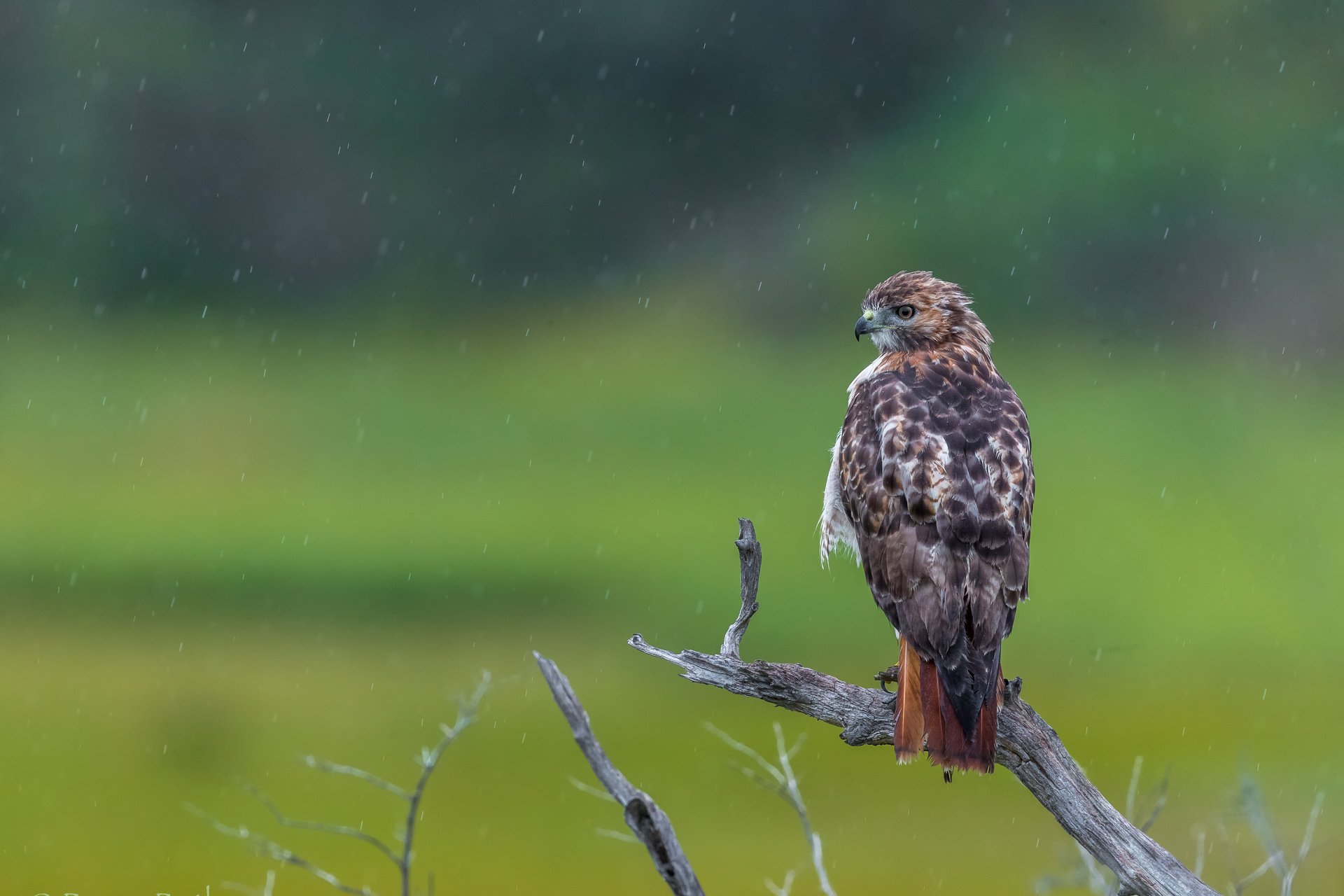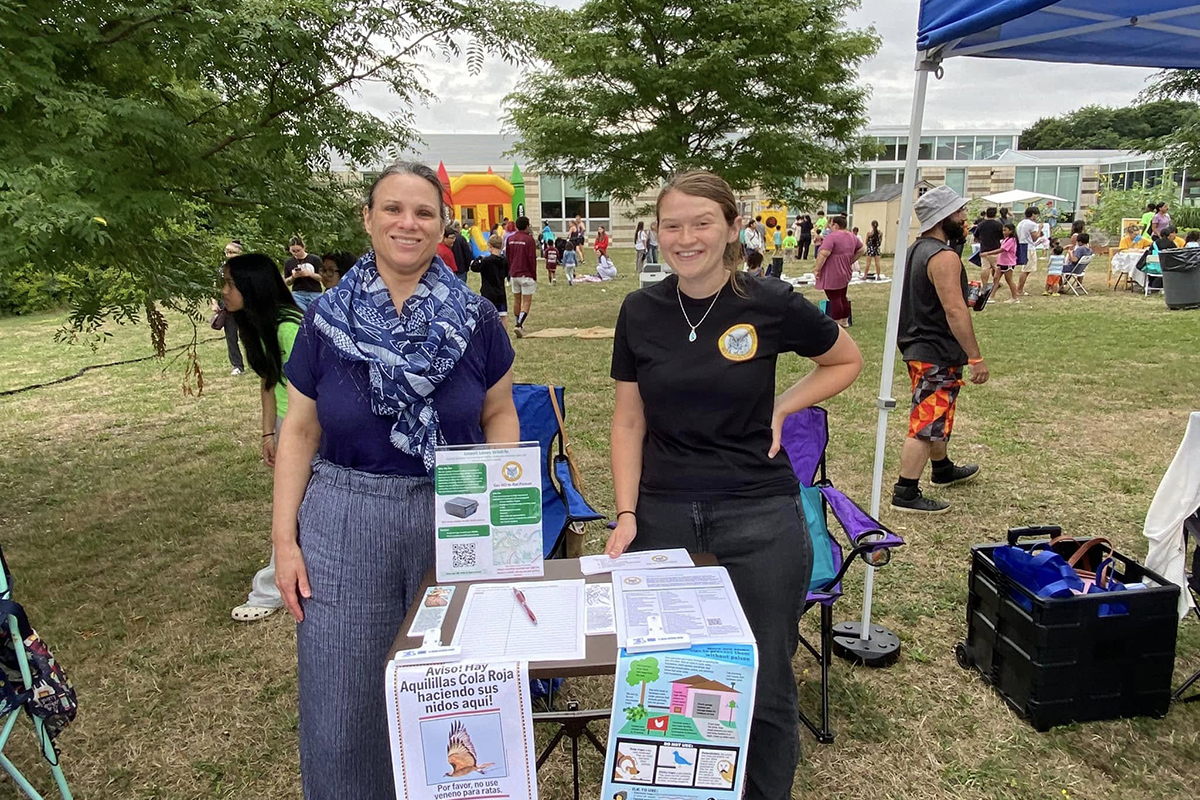Rescue Raptor Win: Lowell City Council Puts a Stop to Rodenticide Use on City Property
February 14, 2025
On February 4, the Lowell City Council voted to stop the use of second-generation anticoagulant rodenticides (SGARs) on city property. These rodent poisons harm a shocking number of wildlife and pets in Massachusetts, which ingest the poison or the poisoned rodents.
A recent study found 100% of Red-tailed Hawks at a Massachusetts wildlife clinic tested positive for SGARs. There are effective wildlife-safe alternatives for rodent control that combine removing food sources, closing access routes, and targeting any remaining rodents.
Mass Audubon’s Rescue Raptors initiative supports campaigns in towns and cities across Massachusetts to reduce the use of these deadly poisons by organizing local groups in their communities
Bringing Rescue Raptors to Lowell
Among the groups that Rescue Raptors supports is Lowell Loves Wildlife, co-founded a year ago by Christine Wilkins and Emily Taranto, and soon after joined by Joanne Dawson.
After a January 2024 kick-off event, the three dedicated volunteers began meeting weekly to chart out their campaign strategy. They started by looking into what Lowell was using for pest management and found that there were hundreds of SGAR bait boxes in use across the city.
“We did a ton of research and had a very detailed understanding of what Lowell was doing on city property to manage rodents—which was key in developing our talking points,” said Dawson. With this knowledge, the volunteers crafted their campaign story and materials to use as they began to build their network and organize in their neighborhoods.
Gaining Community Support
They tabled at community events and hosted their own gatherings. “It was important in growing support for this in the city that we talked to tons of regular people,” said Wilkins. They talked to everyone they encountered—colleagues, neighbors, friends, classmates, business owners—and presented at Neighborhood Group meetings, School Committee meetings, and Board of Health Meetings. They were polite, persistent, and persuasive. And it worked!
At a couple of community events last fall, the Lowell Loves Wildlife volunteers eventually connected with some city councilors. A few of them became allies, and eventually a city councilor decided to propose a motion to prohibit SGAR use on city property. The Lowell Loves Wildlife members spoke at the City Council meeting and distributed a packet of information to each councilor.
A Win for Wildlife
As the motion worked its way through the city’s legal department and the board of health, the group continued its outreach and built people power. On February 4, the city ordinance was on the Lowell City Council meeting agenda, and dozens of activists showed up, surprising the city council members. After all the months of outreach and networking, the volunteers did it—the ordinance passed unanimously!
That night, Taranto shared, “I am overjoyed. I want to give a tremendous thank you to the Lowell City Council, all the eloquent and impassioned speakers who spoke in support of the ordinance, and the overflowing community support we have received this past year. I am very proud of Lowell for taking this step to protect our community and environment. Our future efforts will be focused on educating the community about alternative strategies to using these poisons and trying to ban SGARs on a statewide level. I am very proud to be a part of a team of such strong people and am thrilled at what we were able to accomplish in just one year!”
How You Can Rescue Raptors
These developments are major steps in the campaign to protect raptors and other wildlife from rodent poisons. But to allow raptors and wildlife to thrive across Massachusetts, the use of SGARs will have to be curtailed in all corners of the state.
To achieve that vision, Mass Audubon is supporting and training local advocates to organize campaigns to reduce rodenticide use in communities across Massachusetts. We hope you’ll join us.
Stay Connected
Don't miss a beat on all the ways you can get outdoors, celebrate nature, and get involved.




